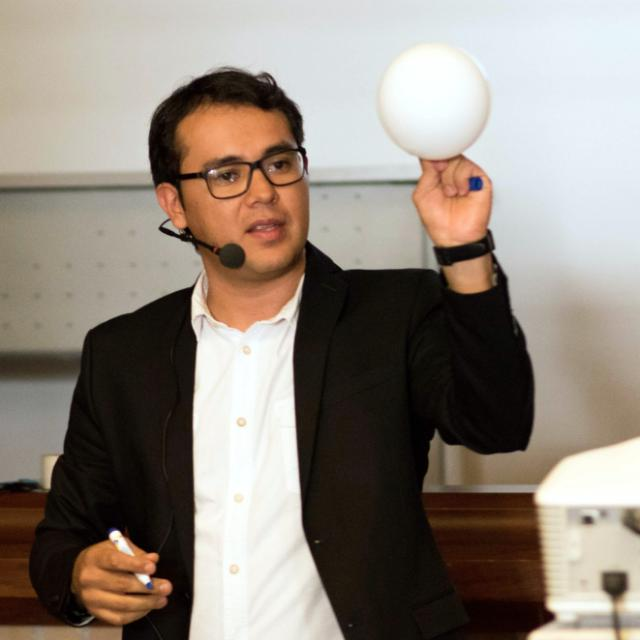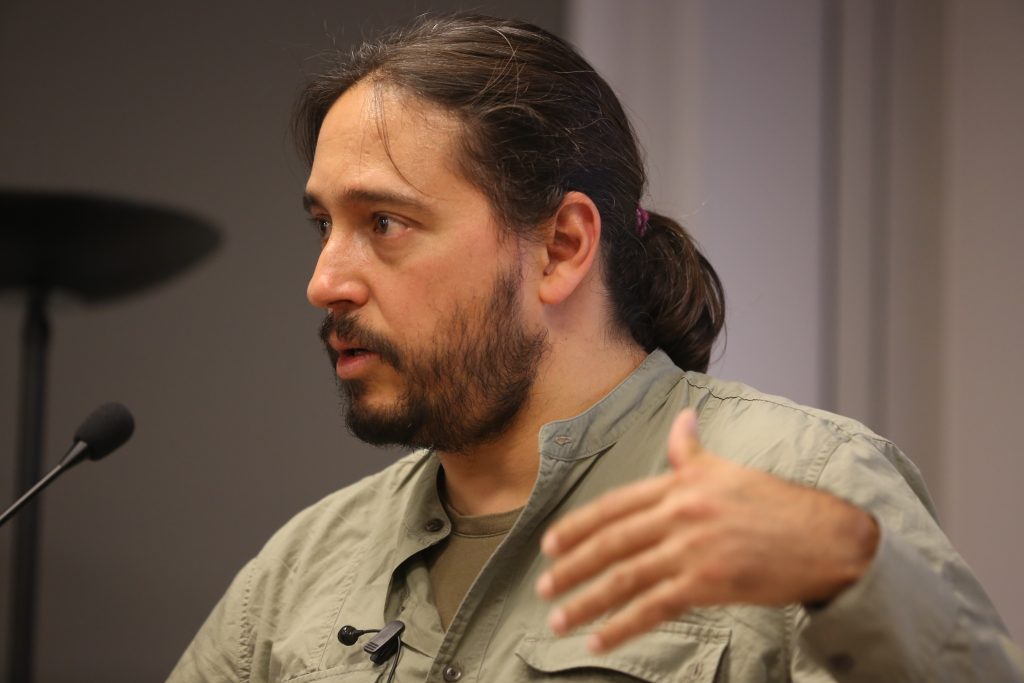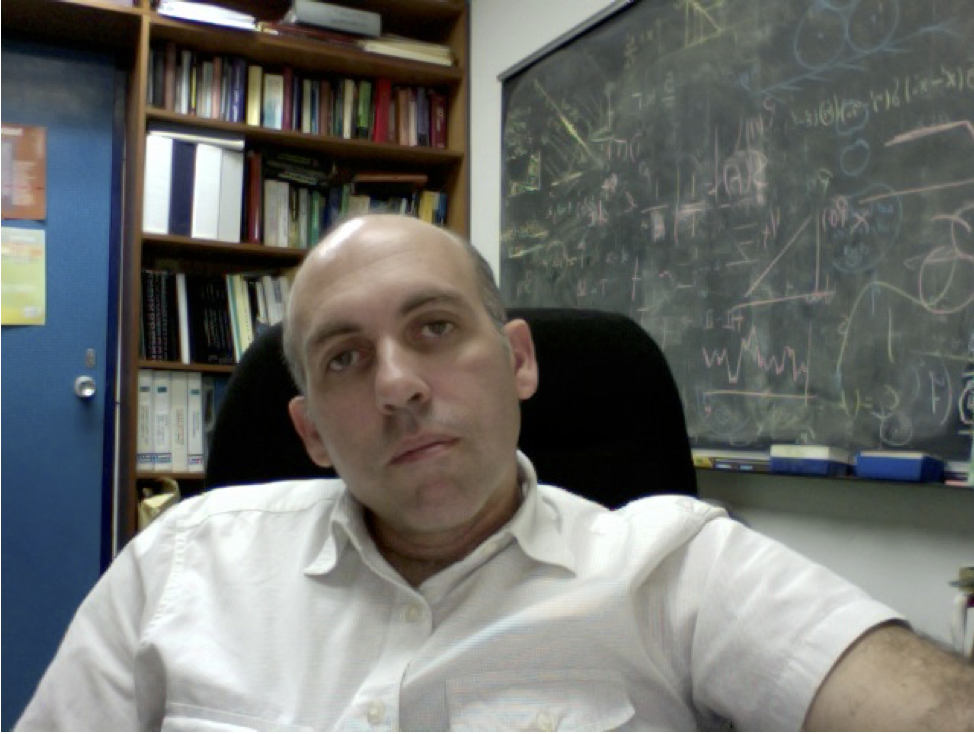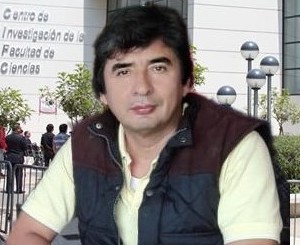Introduction to Data Science¶
This course provides the tools and concepts to manage and analyse large volumes of data. It has three modules and covers both software engineering applied to scientific projects and mathematical statistics. It has a particular emphasis on projects that apply the concepts, both in academic and industrial areas.
The detailed programs for the modules and their responsible are listed below:
Module 1: Research Software Engineering in Python (2 ECTS)¶
Instructors:¶
- Arturo Sánchez Pineda, Laboratoire d’Annecy de Physique des Particules (LAPP), France (previamente ICTP, Italia y CERN, Suiza).
- Juan Carlos Basto Pineda, Universidad Industrial de Santander, Colombia.
Number of hours: 56 hours of total work.¶
- 16 hours of classes/tutorials, over 4 weeks.
- 4 hours of evaluation work, over 1 week
- 36 hours of independent study.
Module description¶
The aim of this module is learn how to construct reliable, readable, efficient research software in a collaborative environment. The module is based on Python but the general ideas can be applied to any other programming language.
Topic overview¶
- Introduction to software engineering for reproducible research
- Python basics
- Research Data in Python
- Version Control
- Testing your code
- Building software projects
- Reproducible environments
- Construction and design practices
- Speed and optimisation
- Advanced Programming Techniques
Pre-requisites/Co-requisites¶
Basic programming knowledge. Students should have done an introductory course in Python, we will provide a recommended online course.
Schedule¶
Check academic calendar here
Class Structure¶
- Each session is a self-contained module
- A set of questions and exercises are proposed at the end of each session as individual work
Assessments¶
The assessment of this module is based on a code assignment.
Students are expected to submit a short report and your code. The purpose of the report is to answer the non-coding questions, to present results and provide a brief description of design choices and implementation.
This correspond to 20% of the total grade for the data science module.
Homework (tareas) Repo¶
Repo with classes and inside each class:
- Docs
- Codes
- Data
- README.md
Schedule and topics¶
Introduction to open reproducible data science (2 hours)¶
- Diagnostics Test
- What is open science?
- Why reproducibility is important in science?
Version Control (2 hours)¶
- Short intro to the Unix Terminal
- Why use version control?
- Solo use of version control
- Publishing your code to GitHub
- Collaborating with others through Git
- Forks, Pull/Merge Requests and the GitHub Flow
- Branching (Optional)
- Rebasing and Merging (Optional)
- Debugging with GitBisect (Optional)
Introduction to Python (2 hours)¶
- Why use scripting languages?
- Python. IPython and the IPython notebook.
- List comprehensions
- Functions in Python
- Modules in Python
- Data structures: list, dictionaries, and sets.
- An introduction to classes (Optional)
Research Data in Python (2 hours)¶
- Working with files on the disk
- Interacting with the internet: streaming
- Plotting with Matplotlib
- Animations with Matplotlib
- JSON and YAML (Optional)
- API (Optional)
Testing your code (2 hours)¶
- Example code
- Why test?
- Unit testing and regression testing
- Negative testing
- Mocking (prototipado)
- Debugging
- Continuous Integration (Optional)
Construction and Design (2 hours)¶
- Coding conventions
- Comments
- Refactoring
- Documentation
- Object Orientation (classes)
- Design Patterns
Software Projects and Reproducible Environments (2 hours)¶
- Turning your code into a package
- Releasing code
- Choosing an open-source license
- In GitLab / GitHub -- Software project management -- Organising issues and tasks
Programming for Speed (2 hours)¶
- Optimisation
- Profiling
- Scaling laws
- NumPy
- Cython
Advanced Programming Techniques (2 hours)¶
- Functional programming
- Metaprogramming
- Duck typing and exceptions
- Operator overloading
- Iterators and Generators
Assessment week (4 hours)¶
Course material¶
The Alan Turing Isntitute Guide for SE
Required¶
This course is largely based on the course created by J. Hetherington for PhD students at The Alan Turing Institute:
Recommended reading¶
Module 2 : Probability and Statistics (5 ECTS)¶
Instructors:¶
- José Ocariz, Université de Paris, Francia.
- Camila Rangel, The Alan Turing Institute, Reino Unido.
Number of hours: 127 total work hours¶
- 28 hours of classes/tutorials over 7 weeks.
- 14 hours of consulting over 7 weeks.
- 25 hours revising required literature.
- 25 hours of self-guided exercises.
- 35 hours of evaluation work.
Course description¶
A pedagogical selection of topics in probability and statistics is presented. Choice and emphasis are driven predominantly from physics analyses using experimental data from high-energy physics detectors. The final section gives a high level description of basic concepts on machine learning. The magistral classes are completed with practical consulting sessions.
Topic overview¶
- Basic concepts in probability and statistics
- Parametric PDFs and parameter estimation
- The maximum likelihood theorem and its applications
- Statistical hypothesis testing
- Basic concepts in Machine Learning
Pre-requisites/co-requisites¶
Open and mandatory to all LA-CoNGA students. Students must have followed the Research Software Engineering course.
Schedule¶
Class Structure¶
- Each session is a self-contained module
- The magistral classes are completed with practical training sessions using jupyter notebooks
Assessments¶
The assessment of this module is based on: * Practical training sessions (20%) * Quizzes (20%) * Mid-term and final code assignments (60%)
Topics & hours¶
Basic concepts in probability and statistics (4 hours)¶
- Random processes
- Mathematical probability
- Conditional probability and Bayes' theorem
- The probability density function
- Multidimensional PDFs
- Programming/practical exercises
Parametric PDFs and parameter estimation (4 hours)¶
- Expectation values
- Shape characterisation
- Parameter estimation
- The classical examples: mean value and variance
- Covariance, correlations, propagation of uncertainties
- Programming/practical exercises
A survey of selected distributions (4 hours)¶
- Two examples of discrete distributions: Binomial and Poisson
- Common examples of real-valued distributions: Uniform, exponential, Gaussian, \(\chi^2\), Breit-Wigner and Voigtian distributions
- Programming/practical exercises
The maximum likelihood theorem and its applications (4 hours)¶
- Likelihood contours
- Selected topics on maximum likelihood
- Samples composed of multiple species
- Extended ML fits
- Non-parabolic likelihoods, likelihoods with multiple maxima
- Programming exercises
Estimating efficiencies with ML fits (4 hours)¶
- ML applications: MLE parameter estimation for a regression and comparison with the Least Square Estimator.
- Systematic uncertainties
- The profile-likelihood method
- Programming/practical exercises
Statistical hypothesis testing (4 hours)¶
- The \(\chi^2\) test
- General properties of hypothesis testing
- From LEP to LHC: statistics in particle physics
- The modified \({\rm CL}(s)\) hypothesis testing
- Profiled likelihood ratios
- Industry example : A/B testing
- Programming/practical exercises
Basic concepts in Machine Learning (4 hours)¶
- Diferences between Machine Learning and Statistical Modelling
- Machine Learning categories: Supervised, unsupervised and reinforcment learning.
- Basics of supervised learning:
- Cost funtions and the gradient descent algorithm.
- Regression problems: Linear regresion
- Classification problems: Logistic regresion, decision trees.
- Under-fitting & Over-fitting
- Regularisation
- Hyperparameter optimisation, cross validation
Course material¶
Required¶
- Cowan, G. (1998). Statistical data analysis. Oxford university press.
- Barlow, R. J. (1993). Statistics: a guide to the use of statistical methods in the physical sciences (Vol. 29). John Wiley & Sons.
- James, F. (2006). Statistical methods in experimental physics. World Scientific Publishing Company.
- Brandt, S. (1998) Statistical and Computational Methods in Data Analysis, Springer, New York.
- Lyons, L. (1986). Statistics for Nuclear and Particle Physicists, Cambridge University Press, Cambridge and New York.
Further reading¶
- Statistical Methods in Particle Physics WS. (Heidelberg): S. Masciocchi / N. Berger: http://www.physi.uni-heidelberg.de/~nberger/teaching/ws12/statistics/statistics.php
- Introduction to Statistical Methods: 2011 CERN Summer Student Lectures (Glen Cowan)
- http://www.pp.rhul.ac.uk/~cowan/stat_cern.html
Module 3: Hands-on Projects (3 ECTS)¶
Data Science hands-on projects in two flavours, one in High Energy Physics and the other in Complex Systems
Number of hours: 75h of hands on practical work over 6 weeks.¶
Module 3-HEP: Hands-on Projects in High Energy Physics (3 ECTS)¶
Organizers:¶
- Arturo Sánchez Pineda, Laboratoire d’Annecy de Physique des Particules (LAPP), France (previamente ICTP, Italia y CERN, Suiza).
- Javier Solano, Universidad Nacional de Ingeniería, Perú.
Pre-requisites/Co-requisites¶
Students should have followed the Statistics and Research Software Engineering courses.
Schedule¶
Class Structure¶
- Academic projects will be developed during weeks 1-3 while non academic projects will be developed between weeks 4-6
- The frequency of meetings/discussion sessions will be decided between the students and the mentors of the corresponding project
Assessments¶
The assessment of this module is based on a presentation and a report of the project's results.
Students are expected to submit a short report and their code. The purpose of the report is to answer the non-coding questions, to present results and provide a brief description of design choices and implementation.
This correspond to 30% of the total grade for the data science module.
Module 3-CS: Hands-on Projects in Molecular Dynamics (3 ECTS)¶
Organizer:¶
- Ernesto Medina, Yachay Tech, Ecuador.
Course description¶
The aims of this course are: * To understand the probabilistic underpinnings of the Monte Carlo approach * To study the main algorithms for Monte Carlo and molecular Dynamics, and how to extract data corresponding to relevant observables * To elaborate a project for a simulation of system either in statistical physics or in a more general context
Topic overview¶
- Overview of problem solving with random numbers
- Review of probabilist concepts, functions of random variables, linear transformations
- Limit theorems and Markov processes
- Random number generation
- Markov Chain Monte Carlo
- Ensembles: Sampling from ensembles, Thermodynamics averages, fluctuations time correlation functions and transport coefficients, Inhomogeneous systems
- Monte-Carlo Methods: Importance sampling, Metropolis method, Monte Carlo at constant temperature and pressure, Grand Canonical Monte Carlo, Estimation of Free energy, Simulation of Phase equilibria.
- Molecular Dynamics: Equations of motion for atomic systems, finite difference methods, Molecular dynamics of rigid non-spherical bodies, multiple time-step algorithms, accuracy checks, molecular dynamics in contact with reservoirs,
- Practical simulation methods: Neighbour lists, multiple time steps, organizing a simulation, self consistency, parallel simulation, loops, replica exchange, analysis of results, liquid structure, time correlation functions, estimating errors.
- Meso Scale Methods: Langevin and Brownian dynamics, Dissipative particle dynamics, lattice Boltzmann methods, developing coarse grained potentials
Pre-requisites/Co-requisites¶
Pre-requisites: Basic knowledge of statistical physics and programming. Co-requisites: The mandatory courses of the complex system branch
Class Structure¶
- 3 weeks for the theoretical course on Monte Carlo and molecular dynamics techniques
- 3 weeks for the simulation project
Assessments¶
The assessment of this module will be done in two parts: a brief dissertation about an application of the MC and MD methods at the end of the theoretical course, and a report and a presentation of the simulation project results. This correspond to 30% of the total grade for the data science module.
Schedule and weekly learning goals¶
Week 1-4: theoretical background¶
- Introduction to the Monte Carlo method, probabilistic foundation
- Sampling from ensembles, thermodynamics averages, fluctuations, time correlation functions
- Metropolis method, detailed balance, Monte Carlo at constant temperature and pressure
- Introduction to molecular dynamics
- Equations of motion for atomic systems, finite difference methods,
- Multiple time-step algorithms, accuracy checks
Week 5-6:¶
The student is supposed to perform a project to simulate a physical system by using either Monte Carlo or molecular dynamics techniques.
Course material¶
Suggested¶
- Kroese D. P., Taimre T, and Botev Z. I. (2001) Handbook of Monte Carlo Methods, Wiley.
- Frenkel, D., & Smit, B. (2001). Understanding molecular simulation: from algorithms to applications (Vol. 1). Elsevier.
- Dill, K., & Bromberg, S. (2012). Molecular driving forces: statistical thermodynamics in biology, chemistry, physics, and nanoscience. Garland Science.
- Allen, M. P., & Tildesley, D. J. (2017). Computer simulation of liquids. Oxford university press.
- Haile, J. M. (1992). Molecular Dynamics Simulations, Elementary Methods, John-Wiley and Sons.
Acompañamiento docente¶
| Juan C. Basto-Pineda UIS Colombia |
Arturo Sánchez Pineda CNRS Francia |
José Ocariz UP Francia |
Camila Rangel-Smith TI Reino Unido |
Ernesto Medina YachayTech Ecuador |
Javier Solano UNI Perú |
|---|---|---|---|---|---|
 |
 |
 |
 |
 |
 |